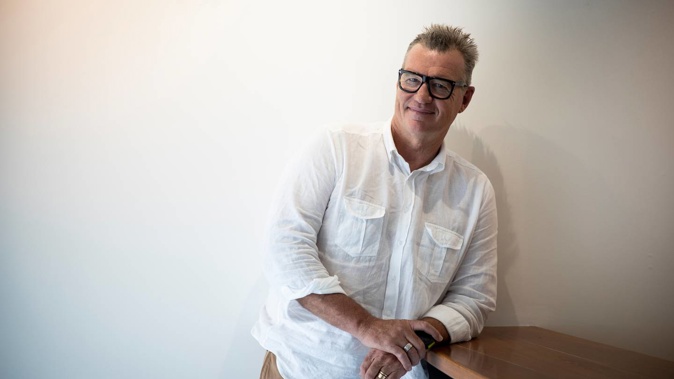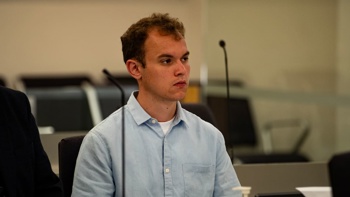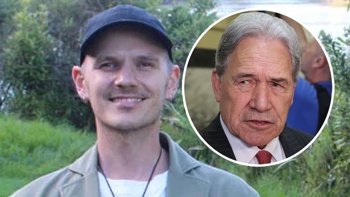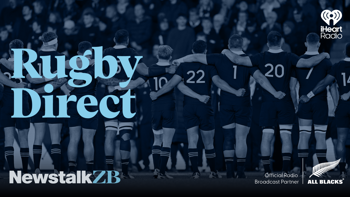
Anxiety and depression arrived in Sir John Kirwan's life when he was about 13.
He didn't have a clue what was going on. His reference for mental health was the film "One Flew Over the Cuckoo's Nest" - about a patient in a psychiatric institution.
"I thought I was going insane, and I hid my anxiety and my depression because I thought it was a weakness," Kirwan told the Herald.
But what if he had known anxiety was normal, and had the tools to cope with it when he was 9? What if he had known that he was defined by his values, not his emotions? What if he had learned to understand his anger?
Those lessons in his formative years would have "totally" made a difference, Kirwan said.
"How do we educate our kids so they just grow up with that normally?"
He's hoping to answer that question with Mitey, a programme from the Sir John Kirwan Foundation that gets schools teaching mental health in Years 1-8.
The All Black legend and mental health campaigner wants to give children the tools they need early on, so they can handle what life throws at them later.
Kirwan has spoken openly about his struggle with depression since retiring from rugby, and was knighted in 2012 for his work on mental health.
But a few years ago, he opened the Herald and read two articles - one on the latest suicide statistics, the other on new workplace mental health legislation - that left him feeling like he'd achieved nothing.
"I'd been the face of mental health and an anti-stigma campaign and a hope campaign for probably 12 years," he said. "And I felt like I'd completely failed...whatever we've been doing is wrong."
The next week, he was stunned to meet a 9-year-old boy who was suffering from anxiety and depression - what he now terms "big problems on little shoulders".
And he met a teacher with expertise in child psychology, who said "You give me a young man or young woman with anxiety at 9 or 10, with any sort of mental health issues, and we can turn it around."
From those encounters was born Mitey, a research-based programme created with input from teachers, principals and child psychiatrists.
Academics from Auckland University have built the curriculum plans so mental health can be taught as a subject, like maths or science, but one that aims not to add to the huge pressures teachers face.
Mitey trains senior teachers as coaches, who are assigned to help each school create its own action plan.
They then help teachers figure out how to fit mental health into lessons, at times co-teaching classes to show how it's done.
Extensive resources are available for each year level, and students ultimately will get report cards like they do in other subjects. Schools don't pay a cent - it's all privately funded.
So far about 12,000 kids have experienced Mitey but Kirwan would love to see it in every primary school. Schools have already snapped up every extra space for 2022.
At Takanini School, principal Margaret Aikman calls Mitey a "game-changer".
The South Auckland primary urgently needed a way to help kids manage their mental wellbeing and deal with distress, Aikman said.
Mitey's coaches had helped them work out a plan last year, and worked on giving teachers confidence to teach mental health and include it in their lessons. In just one example, teachers right now were writing mental health education into their Term 2 Aotearoa New Zealand Histories curriculum, including plans for children to create a visual pepeha and write about bravery and courage.
Covid meant Mitey had only recently been rolled out, but Aikman had already noticed changes.
Staff often found students could say they were feeling mad, or angry, but couldn't explain why they felt that way, Aikman said. Helping them put words around their feelings and behaviour was the critical first step.
"So when we hear a student tell us his feelings were hurt and he felt embarrassed about what he looks like when he was called 'ugly'...we know we are making headway."
Relationships were getting stronger as students learned to understand each other. One boy told Aikman he never knew his classmate was lonely and cried at night because he missed his dad who had gone away. He was now thinking of ways to help when his classmate felt sad.
Aikman urged other schools to consider Mitey.
"For too long educators have been troubled about New Zealand's dire mental health statistics and we've cast about looking for better ways to support our students' mental health," she said. "I believe Mitey will enable us to make a difference. I see Mitey as a game-changer for our school."
Take your Radio, Podcasts and Music with you









